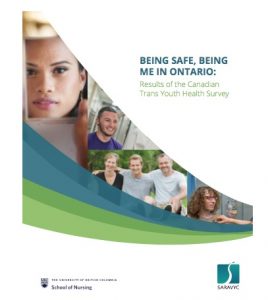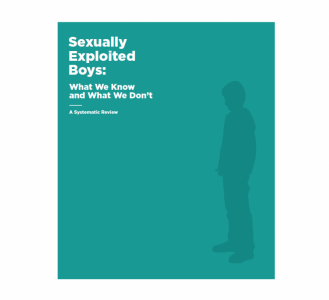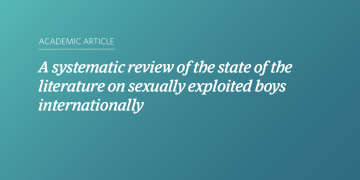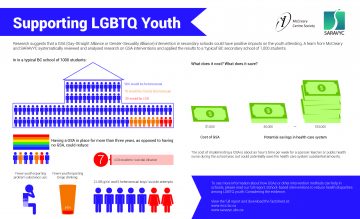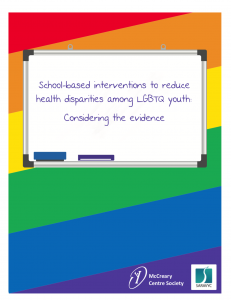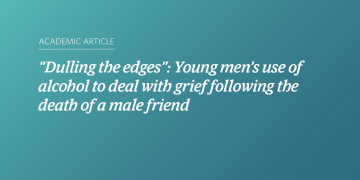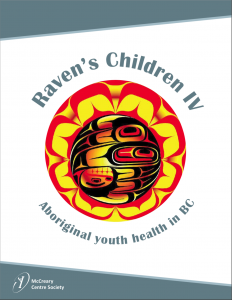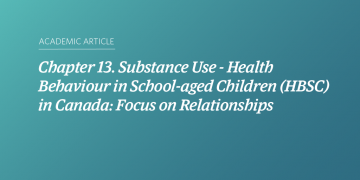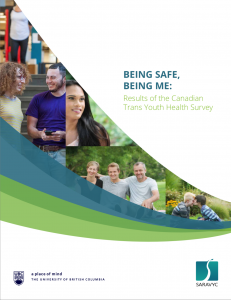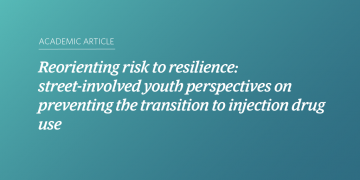Being Safe, Being Me in Ontario: Results of the Canadian Trans Youth Health Survey
The Canadian Trans Youth Health Survey was a national online survey conducted by researchers from several Canadian universities and community organizations. The survey included somewhat different questions for younger (14-18 years) and older (19-25 years) trans youth about a wide range of life experiences and behaviours that influence young people’s health. This report is focused […]
Sexually Exploited Boys: What We Know and What We Don’t
Research and services focused on sexually exploited children and adolescents often target girls and leave out boys. However, research shows that boys often report similar rates of sexual exploitation as girls (10, 19, 27). This suggests that boys may experience more sexual exploitation than is commonly realized, while also facing greater barriers to what few […]
A systematic review of the state of the literature on sexually exploited boys internationally
Abstract This systematic review assessed the current state of the literature on sexually exploited boys internationally. We aimed to describe what is known about sexual exploitation of boys, identify gaps in the literature, provide implications for practice, and make recommendations for future research. Multiple database searches were conducted using a combination of controlled vocabulary and […]
School-based interventions to reduce health disparities among LGBTQ youth: Considering the evidence
There is a need for health promotion interventions for LGBTQ youth that can reduce critical health gaps that LGBTQ youth experience. Schools are an important environment for youth, and a key place where public health professionals, partnering with school staff, can support effective health promotion strategies. Indeed, some of the best strategies for promoting youth […]
“Dulling the edges”: Young men’s use of alcohol to deal with grief following the death of a male friend
Abstract Background: The death of a male friend can be challenging for men because expressions of grief can be governed and restrained by dominant ideals of masculinity. It is common for young men to engage in health risk practices, such as alcohol overuse, to deal with feelings of sadness. Objective: This qualitative study investigated the ways that […]
Raven’s Children IV: Aboriginal youth health in BC
Since 1998 McCreary has worked in partnership with Aboriginal researchers and community Elders, youth, and adults to produce a specific report about the health of Aboriginal youth who complete the BC AHS. This is the fourth Raven’s Children report and is an in-depth look at the health of youth who identified as Aboriginal on the […]
Chapter 13. Substance Use – Health Behaviour in School-aged Children (HBSC) in Canada: Focus on Relationships
Although the continuing decline of cigarette smoking among adolescents in Canada is good news, the emergence of e-cigarettes use among adolescents bears watching. At present, the research is limited on the health effects of the liquids in e-cigarettes, and it is unclear whether they serve as a route to nicotine dependence and regular tobacco use […]
Being Safe, Being Me: Results of the Canadian Trans Youth Health Survey
A national study by SARAVYC showed that while Canada’s transgender youth face significant physical and mental health issues, strong family, school and community connections help many of them navigate these challenges. The study, funded by the Canadian Institute for Health Research and completed in collaboration with universities and health researchers across Canada, was the first […]
Reorienting risk to resilience: street-involved youth perspectives on preventing the transition to injection drug use
Abstract Background: The Youth Injection Prevention (YIP) project aimed to identify factors associated with the prevention of transitioning to injection drug use (IDU) among street-involved youth (youth who had spent at least 3 consecutive nights without a fixed address or without their parents/caregivers in the previous six months) aged 16–24 years in Metro Vancouver, British Columbia. […]
